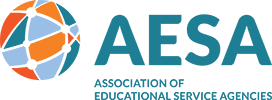A new report produced by the Healthy Schools Campaign looks at what would happen to school health services, student resources and district funding if Congress cuts Medicaid.
Read MoreWhat we know of the latest of 3/11/25 USED reduction in force (RIF) and the preceding events this week.
Read MoreAESA joined more than 30 other national organizations in a joint letter to Congress. The letter urges the Senate to vote against S.J.Res.7, a Congressional Review Act (CRA) resolution that would overturn the Federal Communications Commission’s E-Rate hotspot decision last year.
Read MoreThe United States Department of Agriculture (USDA) has announced that it is cancelling two programs – estimated worth of $1 billion – that provides resources for schools and other organizations to purchase local foods.
Read MoreAESA is proud member of the IDEA Full Funding Coalition. The coalition has committed to advocacy efforts to raise awareness and urge Congress’ to fully fund the legislation that supports students with special needs.
Read MoreToday, Education Week released their latest report on The State of Teaching.
Read MoreJoin Brookings for a webinar on Friday, February 28 at 1:30 p.m. ET with education and legal scholars, including experts in education civil rights enforcement, to discuss the legality of the February 14 guidance letter.
Read MoreJoin the IDEA Full Funding Coalition for a webinar on February 24th at 11am. Learn about the impact of chronic underfunding on students with disabilities, schools, and families.
Read MoreWe’ve had a variety of good resources come across our desks as groups look to provide real-time information on what proposed policy changes—including funding cuts and gutting USED—will mean, and several of these provide state or local analysis.
Read MoreOn January 29, 2025, the Trump administration issued two executive orders with significant implications for public schools: “Ending Radical Indoctrination in K-12 Schooling” and “Expanding Educational Freedom and Opportunity for Families.”
Read MoreRelated Resources
|
Other websites and resources:
United States Department of Education
IDEA Legislation:
Chapter 33-Education of Individuals with Disabilities
